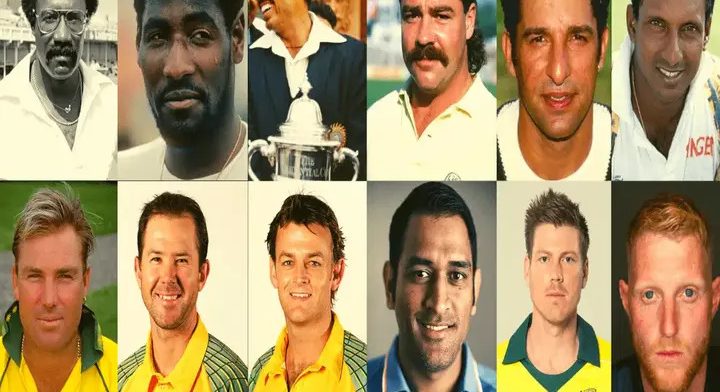Man of the Match in ODI World Cup Final from 1975 to 2023
Published on: Nov 19, 2023 9:25 pm IST|Updated on: Nov 20, 2023 1:08 pm IST

Travis Head is the Man of the Match in ODI World Cup 2023 Final.
The Cricket World Cup, which began in 1975, has a special place in the hearts of cricket fans. Kicking off with the thrilling league stage, the tournament progresses to the final, rewarding one lucky side with everlasting memories. In the middle of this fascinating tale, a player stole the show with an outstanding performance, earning the prestigious Man of the Match title.
Let us ride through the history of one of the tournament’s biggest individual honors, the Man of the Match award.
| Year | Man of the Match | Performance |
| 1975 | Clive Lloyd | 102 runs |
| 1979 | Vivian Richards | 138 runs |
| 1983 | Mohinder Amarnath | 26 runs & 3 wickets |
| 1987 | David Boon | 75 runs |
| 1992 | Wasim Akram | 33 runs & 3 wickets |
| 1996 | Aravinda de Silva | 107 not out |
| 1999 | Shane Warne | 4 wickets |
| 2003 | Ricky Ponting | 140 runs |
| 2007 | Adam Gilchrist | 149 runs |
| 2011 | MS Dhoni | 91 runs |
| 2015 | James Faulkner | 3 wickets |
| 2019 | Ben Stokes | 84 runs |
| 2023 | Travis Head | 137 runs |
1975-79: West Indies Cricketing Dominance
The West Indies proved their dominance in the finals, defeating Australia and England by 17 and 92 runs, respectively.
Clive Lloyd from West Indies helped heavily to their maiden trophy, scoring 102 runs off 85 balls against Australia, and Vivian Richards was named Man of the Match for his 138-run innings against England in the 1979 finals.
1983: India’s Spectacular Emergence
India defeated a powerful West Indies side by 43 runs in the finals, with Mohinder Amarnath’s crucial three wickets earning him the title of Man of the Match.
1987: Australia’s Maiden Triumph on Cricket’s Grand Stage
Australia’s dream of taking the trophy became a reality in 1987, making it an enduring memory in the cricketing world. David Boon was the hero of their win, scoring 75 runs in the final to lead Australia to victory over England.
1992: Pakistan’s Rise in Global Cricket
In 1992, Imran Khan led Pakistan to become the second Asian team to win the World Cup. People still remember Wasim Akram’s incredible game against England. He not only scored a quick 33 runs but also delivered an outstanding performance with the ball, taking three crucial wickets.
1996: Sri Lankan Glory Unfolds
Sri Lanka showed their supremacy in the 1996 World Cup, becoming the third Asian team to win the prestigious trophy. The finals saw an outstanding effort as they beat Australia by 7 wickets. Aravinda de Silva was instrumental in guiding the side to victory while taking a target of 241 runs.
1999-2007: Australia’s Historic Dominance in World Cricket
By lifting the World Cup three times in a row, Australia cemented their cricketing dominance. Shane Warne, Ricky Ponting, and Adam Gilchrist all played important roles in the final game and were chosen MoM, respectively.
2011: India’s Glorious Second World Cup Triumph
After 28 years, India collected the World Cup trophy with a six-wicket victory over Sri Lanka in the final. Captain Dhoni, who played a stunning inning of 91 runs, was the blueprint of this victory, and his performance remains remembered lovingly by many.
2015: Australia triumphantly returned to glory
In 2015, Australia repeated their dominance by defeating New Zealand in the final by seven wickets, securing the World Cup trophy for the record fifth time. It was James Faulkner, with three wickets, who emerged as the hero of this victory.
2019: England’s Long-Awaited Path to Victory
In 2019, England broke their long drought by defeating New Zealand thanks to a brilliant 84-run inning by Ben Stokes. Despite the result, this generated controversy over various ICC rules. Nonetheless, England has finally left an indelible mark on the pages of cricket history.
















